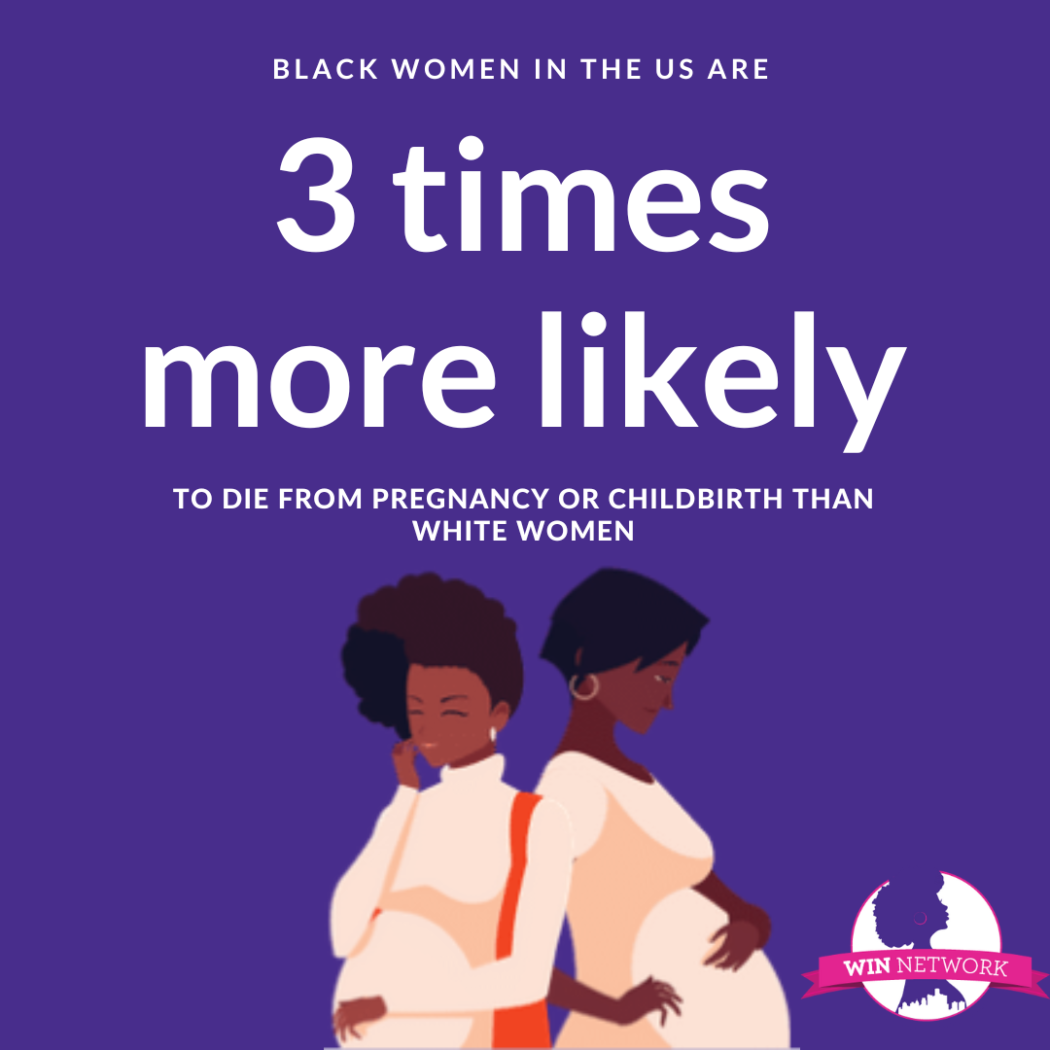How Does Racism Affect Pregnancy & Birth Outcomes?

What are Racial Disparities & How Does Racism Affect Pregnancy?
Racial disparities in health outcomes result from the unfair treatment of people due to their race. Experiencing racism over a lifetime creates high levels of a stress hormone called cortisol. Cortisol causes the body to not work as well as it should (1). This process is known as the “weathering effect,” and has been shown to be one of the causes of racial health disparities in the United States (1).
The weathering effect affects women of color because they experience additional underlying stress from racism, which can harm pregnant women and their babies. In the United States, Black women experience unacceptably poor maternal health outcomes (2). Black women in the US are three times more likely to die from pregnancy or childbirth than white women (2).
Racial disparities in maternal and infant health are also experienced by American Indian/Alaska Native (AIAN), Hispanic, Asian, and Native Hawaiian and Other Pacific Islander (NHOPI) women. Figures 1-3 show three different outcomes across White, Black, AIAN, Hispanic, Asian, and NHOPI pregnancies. Overall, Black, AIAN, and NHOPI women have higher rates of preterm births, low birthweight births, and late or no prenatal care compared to white women (3). Infants born to Black, AIAN, and NHOPI individuals also face much higher mortality rates than those born to white women (3). These results help show the impacts that women of color and their infants face because of poor healthcare access due to racial disparities.
Does Midwifery Care Improve Maternal and Infant Health Outcomes?
The CDC estimates that 60% of pregnancy-related maternal deaths are preventable (1). Even though the United States is improving in lowering infant deaths, women of color and their babies have to deal with the high burden of infant deaths (1). Children born to Black women are more than twice as likely to die before their first birthday, even for mothers who have a low-risk pregnancy (1). We need to approach healthcare in a way that reflects and prioritizes the needs of women of color. Midwifery care has been shown to improve outcomes worldwide, leading to lower rates of cesarean sections (C-sections), preterm births, and anemia (4). The World Health Organization says midwifery plays an important role in lowering newborn and maternal deaths.
Midwives serve as direct care for pregnant women, providing routine prenatal care, attending births, and offering postpartum support (4). This model of care that focuses on the social and emotional well-being of mothers can help reduce the impact of generational racism, trauma, and improve birth outcomes for women of color.
Sources:
- https://www.ncsl.org/health/preventing-infant-and-maternal-mortality-state-policy-options
- https://nationaldiaperbanknetwork.org/black-mothers-pregnant-women-are-struggling-in-the-us%ef%bf%bc/?gclid=CjwKCAjwhdWkBhBZEiwA1ibLmKWcpRD4M1OlxlyYFc1XkaidBVhFg2nXx18hgVkhzREVhP4J2t4weRoCDrIQAvD_BwE
- https://www.kff.org/racial-equity-and-health-policy/issue-brief/racial-disparities-in-maternal-and-infant-health-current-status-and-efforts-to-address-them/
- https://www.directrelief.org/2022/07/improving-birth-outcomes-among-women-of-color-begins-with-care-that-reflects-them/


